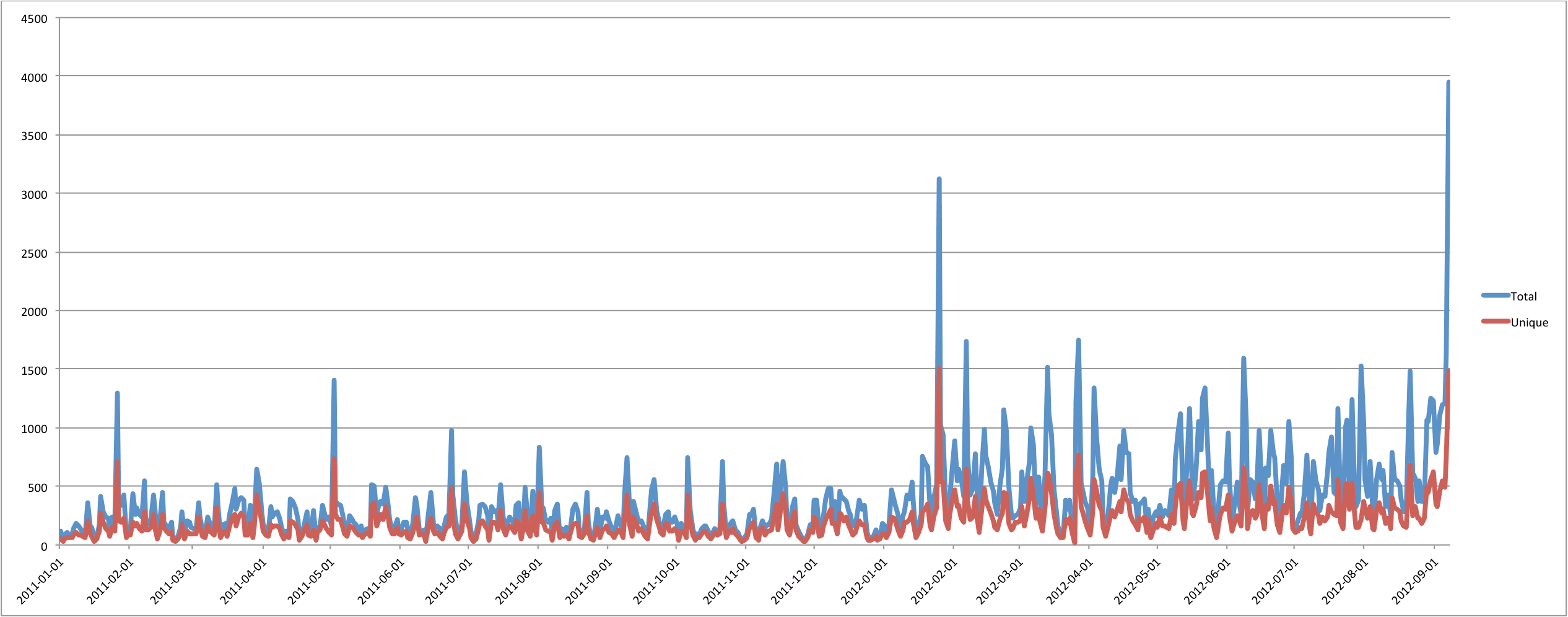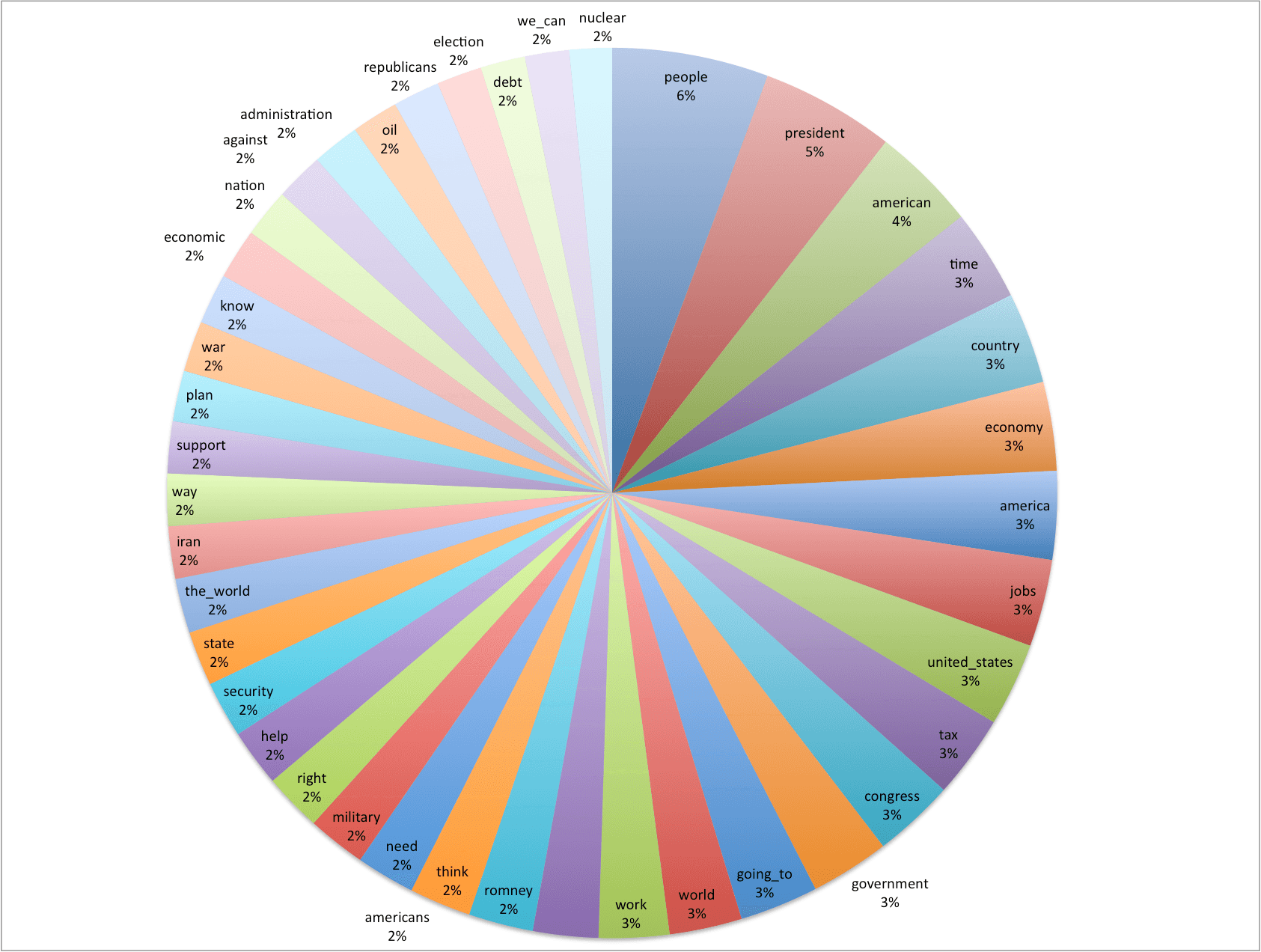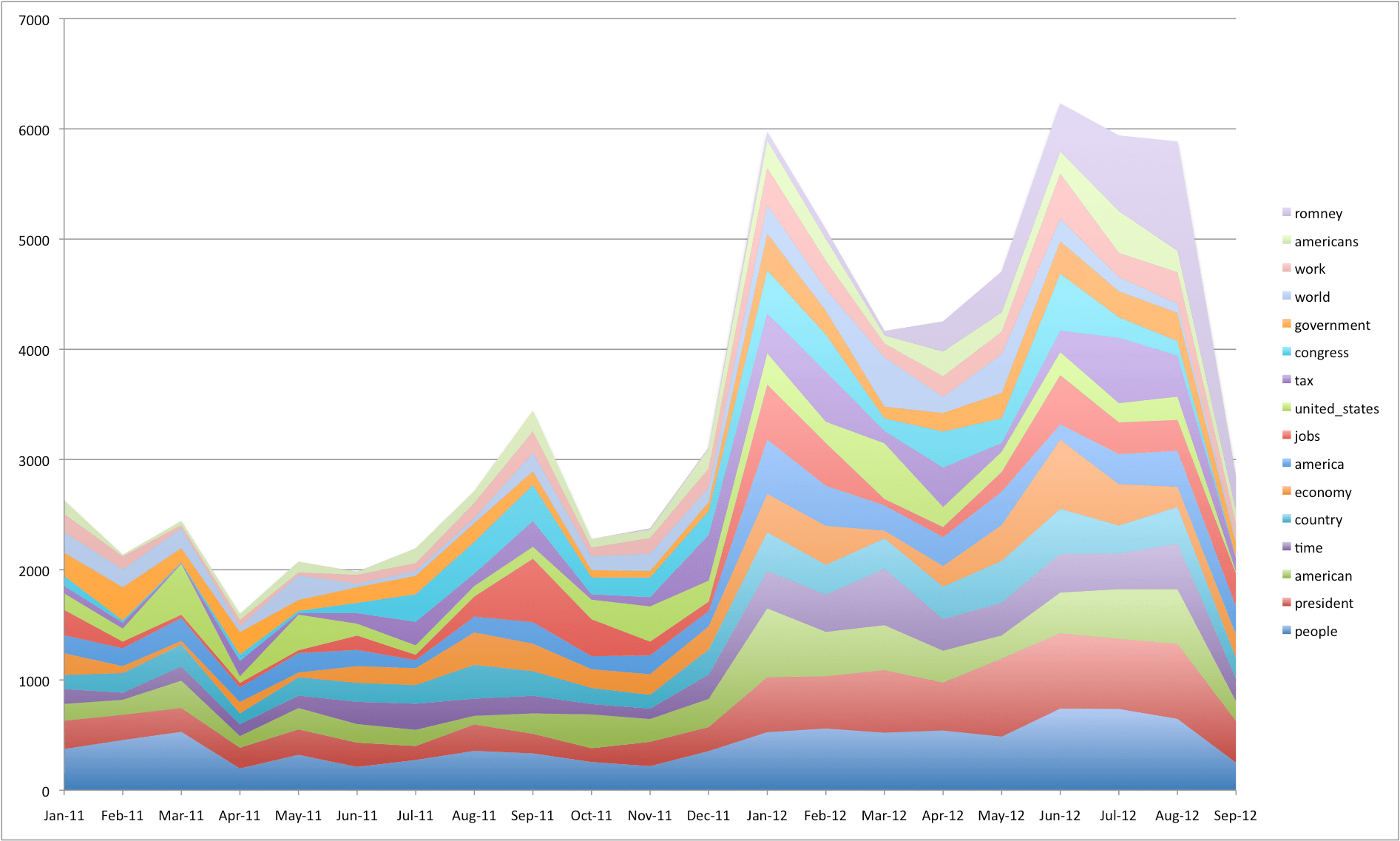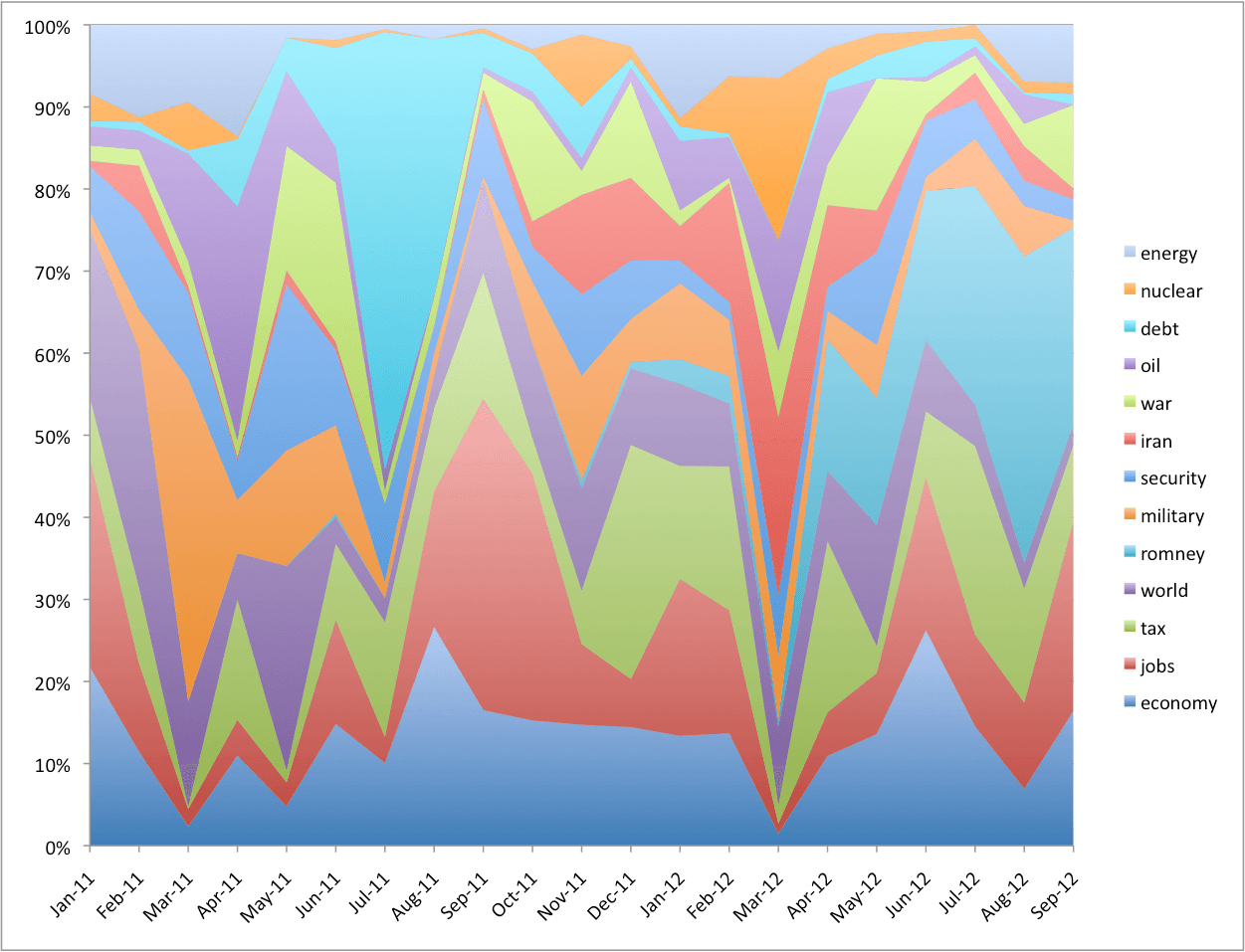The Campaign Language of Barack Obama
Our analysis of Mitt Romney’s campaign language campaign language generated requests for similar data on President Barack Obama’s for comparative analysis. We did so following the Democratic National Convention, and below you’ll find an examination of Obama’s statements during the last 20 months (January 2011 to September 2012) derived from analysis of 124,419 unique quotations identified in 150,000+ online sources by Recorded Future.
Here is the history of his campaign:
Quotes per Day
 Obama Quotes - January 2011 to September 2012
Obama Quotes - January 2011 to September 2012
There were more than 3x the number of unique quotations attributed to Obama (124,419) than to Romney (37,591) during the same time frame. The days with the most reported quotations are as follows:
- January 25, 2011 – State of the Union 2011
- May 2, 2011 – Osama bin Laden killed
- June 22, 2011 – Announcement of Afghanistan troop withdrawal
- January 24, 2012 – 2012 State of the Union
- September 7, 2012 – Speech at the Democratic National Convention.
*Note: The “Unique” score above takes syndicated reports of the same quotation and only counts them once.
Most Commonly Used Words
 Obama's Common Language in Quotes
Obama's Common Language in Quotes
What are the terms most used by Obama? The top four are “people”, “president”, “American”, and “time”. The first two terms are also present in Romney’s “top four”, and six of the top twelve most mentioned terms are the same for both candidates , perhaps establishing what we consider “presidential” language.
For Obama, “jobs” tops “tax”, and “economy” and “country” appear a bit more frequently than they do in Romney’s statements, the most notable difference in language is Romney’s mentioning of Obama by name in his quotations while Romney appears in a smaller share of Obama’s statements.
Shifts in Language Over Time
 Obama Shifts in Language from January 2011 to September 2012
Obama Shifts in Language from January 2011 to September 2012
Picking up where the above commentary left off, we can see that while the share of Obama quotations mentioning Romney is relatively small compared to his use of other terms, mentions of Romney really picked up during June-July of 2012 in advance of the conventions.
There are also interesting bumps in the use of certain terms during significant events such as “world” and “United States” used at the time of Osama bin Laden’s death and spikes in the use of “jobs” during periods of legislation and positive economic growth reports and relatively little use of the word at other times.
Share of Major Themes
 Major Topics of Quotations - January 2011 to August 2012
Major Topics of Quotations - January 2011 to August 2012
For this final graph, we selected several major themes to see how they ebbed and flowed as major topics of discussion over the last 20 months. We can easily spot defining moments in both foreign policy – “military” in early 2011 related to Libya and “nuclear” in early 2012 related to Iran and Israel – and domestic policy as “debt” took center stage during the summer of 2011 and Romney surges as an issue beginning in March 2012.
How We Did It
Using the Recorded Future API, we extracted a total of 232,884 quotes attributed to Barack Obama during the period between January 1, 2011 and September 10, 2012.
Of those quotes, 124,419 were unique, and the rest were duplicates with the same quote republished by different media, blogs etc. [Sometimes different sources will do very minor alterations to a quote, like omitting a word or changing punctuation, but we considered such minor difference as unique in this study.]
For each day, and over the entire period, we then calculated the set of most commonly used word, and filtered out “small words” like pronouns, “the”, and “of”. We then manually selected a set of words we consider indicative of different topics, and counted the relative use of those per day to produce the final graph.
If you’d like to conduct similar news analysis, take a look at the details of the Recorded Future API, and we’ll be glad to help you get started.
Related
